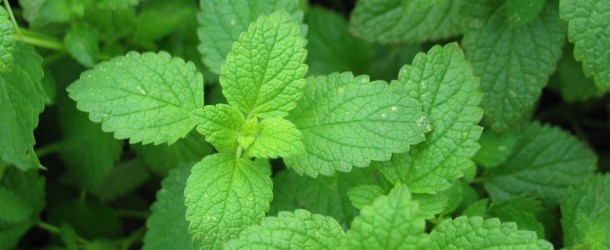Relieve Headaches, Stress and Indigestion with Peppermint
Peppermint (Mentha x piperita) has a long history of medicinal use. It is widely used as a tea and its flavor or scent is included in a variety of herbal medicine preparations and commercial products. Now, the benefits of peppermint for a variety of ailments are being supported by scientific research.
What is Peppermint?
Peppermint is a hybrid mint (a cross between water mint and spearmint) with a fresh, invigorating and cooling aroma and taste. Peppermint oil is produced through steam distillation of the flowering tops and leaves from the plant.
Why Should I Use Peppermint?
In herbal medicine, peppermint has traditionally been used to treat symptoms of colds and congestion, as a mild analgesic, for headaches, menstrual symptoms and cramps, muscle soreness, and for gastrointestinal disorders, including irritable bowel syndrome (IBS), indigestion and nausea.
Recent studies indicate that peppermint oil capsules improve symptoms of IBS and may be a viable adjunct treatment option[1, 2]. Other studies have found that peppermint reduces the incidence and severity of nausea and vomiting[3], and may be useful in the treatment of postoperative nausea[4]. Research also suggests that peppermint is effective in relieving stress[5] and treating tension-type headaches [6].
Give peppermint a try for a headache, upset stomach or relaxation. Enjoy peppermint tea after meals to promote digestion.
How to Use Peppermint
- Tea: Place six fresh peppermint leaves in mug and pour one cup almost-boiling water over the leaves to steep for five minutes. Strain before drinking. Drink after meals to promote digestion, or drink to help with a sore throat, nausea, or indigestion.
- Massage balm or oil: Place a drop of essential oil or peppermint oil-infused balm on the temples, forehead and neck to relieve a headaches. Use diluted with other plant oils for an invigorating massage.
- Body mist: Dilute two to four drops of peppermint oil in four ounces of water in a spray bottle for a refreshing all over body mist (avoid the eyes).
- Bath: Place two drops of peppermint oil in a warm bath for relaxation.
- Steam: Use two drops of peppermint oil with your humidifier, or fill your bathroom sink with hot water, add two drops of peppermint oil, and lean over the sink with a towel over your head for two minutes. A good steam and inhalation can help to relieve mucus congestion and alleviate nausea.
- All-purpose cleaner: Mix four or five drops in a spray bottle with two cups water and half a cup white vinegar for a minty fresh, clean home.
Safety Precautions
Always use peppermint oil in weak dilutions. Excessive doses of peppermint oil can be toxic. The safety of peppermint oil in young children, pregnant or nursing women, or those with severe liver or kidney disease is not established and use should be avoided. Check with your doctor if you are unsure if peppermint will be suitable for you.
What do you use peppermint for (fresh leaves or essential oil)? Let us know in the comments!
.
Featured image via haiinee
- Pirotta M (2009) Irritable bowel syndrome – The role of complementary medicines in treatment. Aust Fam Physician 38(12):966-968.
- Wilkins T, Pepitone C, Alex B, Schade RR (2012) Diagnosis and management of IBS in adults. Am Fam Physician 86(5):419-426.
- Lua PL, Zakaria NS (2012) A brief review of current scientific evidence involving aromatherapy use for nausea and vomiting. J Altern Complement Med 18(6):534-540.
- Lane B, Cannella K, Bowen C, Copelan D, Nteff G, et al. (2012) Examination of the effectiveness of peppermint aromatherapy on nausea in women post C-section. J Holist Nurs 30(2):90-104.
- Toda, M., & Morimoto, K. (2011). Evaluation of Effects of Lavender and Peppermint Aromatherapy Using Sensitive Salivary Endocrinological Stress Markers. Stress & Health: Journal Of The International Society For The Investigation Of Stress, 27(5), 430-435.
- Göbel H; Fresenius J; Heinze A; Dworschak M; Soyka, D 1996, ‘[Effectiveness of Oleum menthae piperitae and paracetamol in therapy of headache of the tension type]’, Der Nervenarzt, 67, 8, pp. 672-681.
